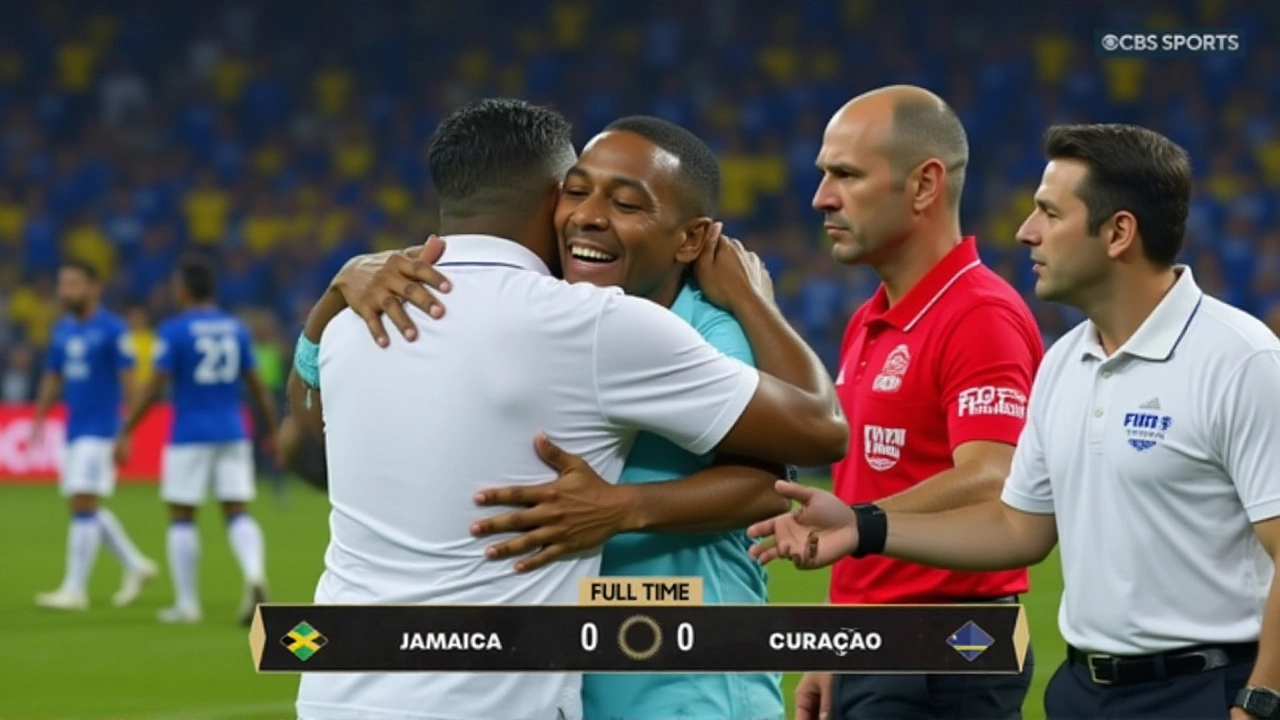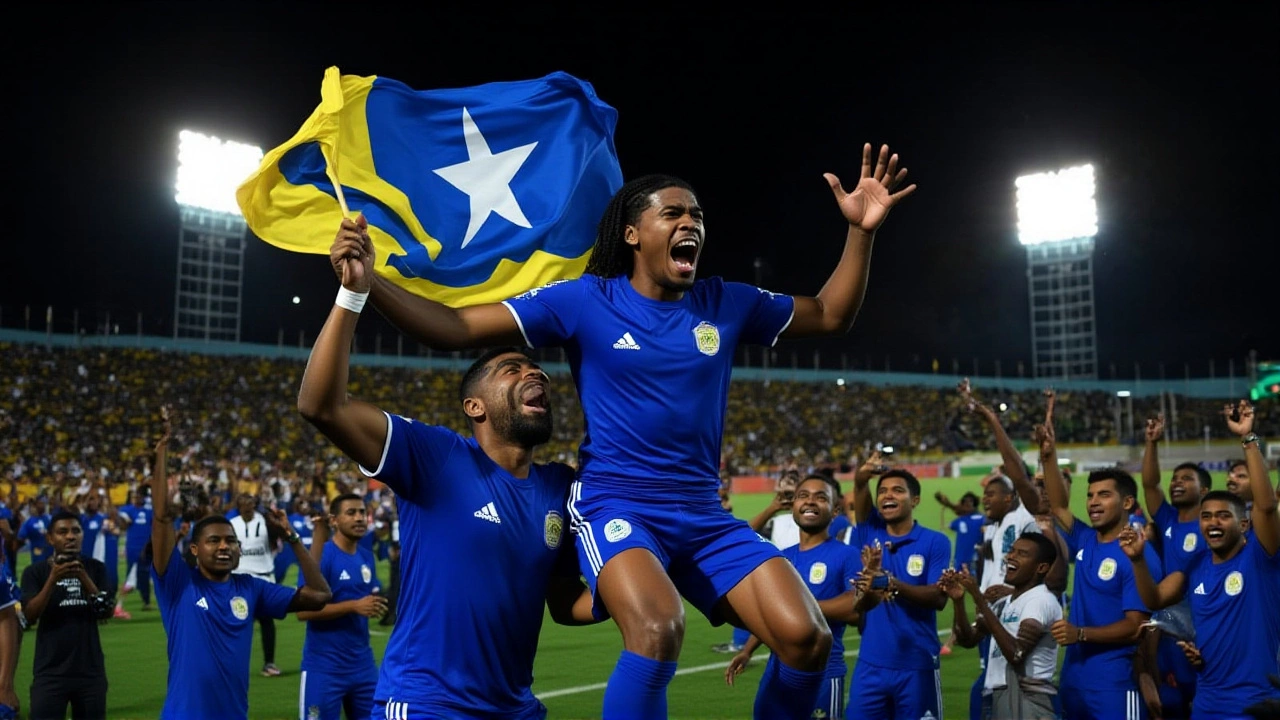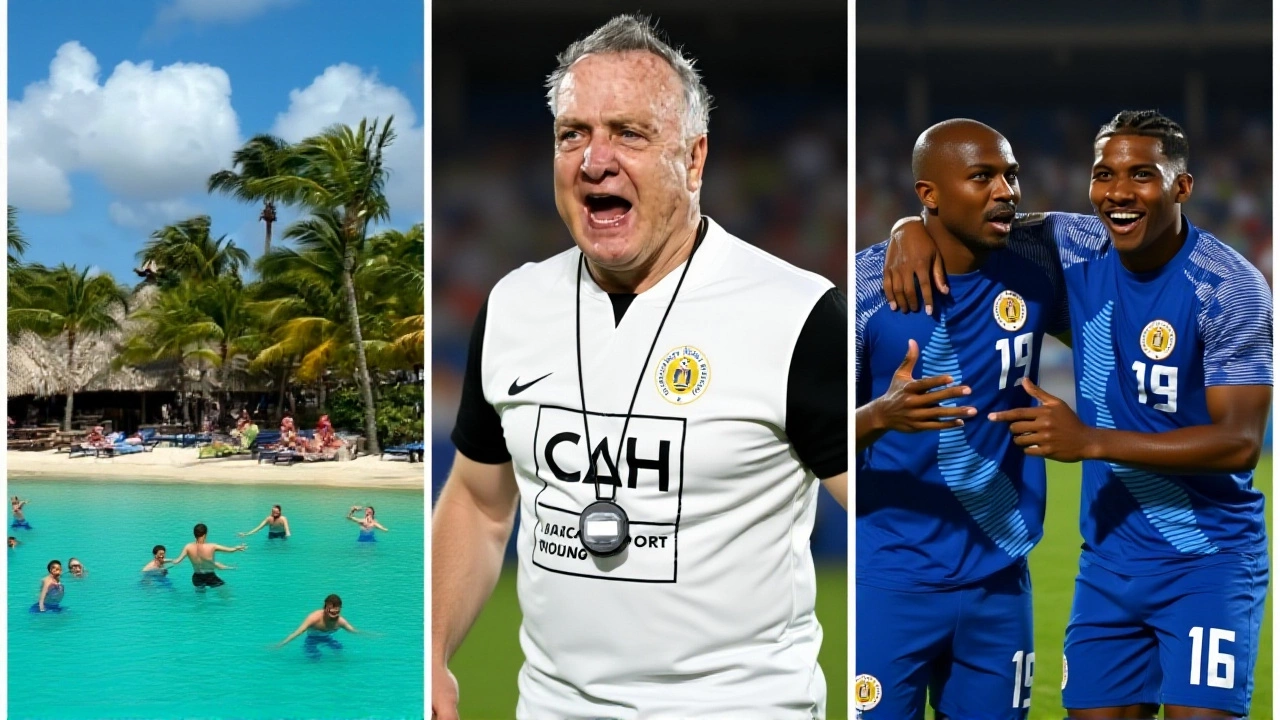On November 19, 2025, at 00:01:07 UTC, AFP News Agency released a one-minute video capturing the raw, unfiltered joy of a tiny Caribbean nation achieving the impossible: Curacao had just qualified for the 2026 FIFA World CupMexico, United States, and Canada. With a population of just 160,000, Curacao isn’t just the smallest nation to ever make it to football’s biggest stage—it’s the first time in its history. And the celebration? Pure, unscripted magic.
A Nation That Wasn’t Supposed to Be Here
Curacao, a Dutch Caribbean island half the size of Rhode Island, has spent decades as a footnote in international football. Its national team, nicknamed the Curaçaoan Lions, had never even reached a World Cup qualifier playoff. But on November 19, 2025, they did the unthinkable—beating Jamaica in a tense CONCACAF qualifying match, the details of which remain officially unreported. No score. No venue. No box score. Just a single video from AFP, and a voice trembling with disbelief.
"I didn’t expect this because I thought Jamaica was a strong team, but we did it," said the unidentified team delegate at 00:17 in the video. Then, at 00:35: "We will show everyone that we are small, but we are big at heart. We’re going to show them that we are big at heart." Those words weren’t just hype. They were a promise. And for a place where football is played on cracked concrete pitches and kids dream of playing in Amsterdam or Miami, not Moscow or Monterrey, this was the ultimate underdog triumph.
Why This Matters Beyond the Pitch
The 2026 World Cup is the first to feature 48 teams, up from 32. FIFA’s expansion wasn’t just about money—it was about inclusion. And Curacao’s qualification is the most vivid symbol of that mission. Before them, only four nations had ever made their World Cup debut in the modern era: Cape Verde (2012), Jordan (2022), Uzbekistan (2022), and now Curacao. Each was a surprise. Curacao? A revelation.
Compare it to Luxembourg, population 640,000, which has never qualified. Or Iceland, population 370,000, which made it in 2018 and stunned England. Curacao is smaller than both. Smaller than Liechtenstein. Smaller than San Marino. Smaller than any nation ever to play in a World Cup. And yet, they’re going to be there.
"This isn’t just about football," said Dr. Lina Smit, a sports sociologist at the University of the Netherlands Antilles. "It’s about identity. For generations, Curacaoans were told they were too small, too poor, too distant. Now, they’re telling the world: size doesn’t define heart. And that message echoes far beyond the Caribbean."

The Road to 2026: What Comes Next?
The qualification was confirmed on November 19, 2025, but the real test begins in June 2026, when the tournament kicks off across 16 cities from Vancouver to Mexico City. Curacao will be drawn into one of the 12 groups, likely facing giants like Brazil, Germany, or the United States. Their squad? Mostly players from the Dutch Eredivisie, a few from Belgium, and a handful of homegrown talent who never left the island.
There’s no official coach named yet. No training camp announced. No jersey design released. But that’s the beauty of it. This team isn’t built on budgets or sponsorships. It’s built on pride. On kids in Willemstad who watch highlights of Wesley Sneijder and say, "That could be me." On a government that spends less than $2 million annually on football, compared to $300 million for the Netherlands.

A Legacy Written in Sweat, Not Statistics
The AFP video ends at 00:53 with applause, music, and a quiet "Thank you." No names. No logos. No corporate branding. Just a moment—raw, real, and unforgettable.
Curacao’s story isn’t about goals scored or records broken. It’s about what happens when a community believes in something bigger than itself. When a place with no World Cup history becomes the most unlikely symbol of the tournament’s soul.
By June 2026, millions will tune in. Some for the stars. Some for the drama. But many will be watching for Curacao. Because in a world obsessed with scale, here’s a team that proves: sometimes, the smallest voices carry the loudest echoes.
Frequently Asked Questions
How did Curacao qualify for the 2026 World Cup without any official match details being released?
While AFP confirmed Curacao’s qualification on November 19, 2025, the exact match result, venue, and score against Jamaica remain unpublicized. This is unusual but not unheard of in CONCACAF qualifying, where results are sometimes confirmed via league tables rather than live broadcasts. Curacao likely advanced through the final round of group play, finishing ahead of Jamaica based on goal difference or head-to-head results.
What makes Curacao the "smallest" country to qualify?
Curacao qualifies as the smallest by population—around 160,000 people—surpassing previous smallest qualifiers like Iceland (370,000) and Luxembourg (640,000). By land area, it’s also among the tiniest, at just 444 square kilometers. No nation with fewer citizens has ever reached a World Cup finals, making this a demographic milestone in global sports.
Who are the other debutant nations in the 2026 World Cup?
Alongside Curacao, Cape Verde, Jordan, and Uzbekistan are also making their first World Cup appearances in 2026. Cape Verde qualified for the first time in 2012, but only reached the group stage. Jordan and Uzbekistan reached the 2022 tournament but never before made it to the finals. Curacao’s debut is unique because of its population size and Caribbean context.
Will Curacao have a professional coaching staff for the 2026 World Cup?
As of now, no official head coach has been named. The team has been managed by interim staff since 2024, with Dutch-born coach Frank de Boer rumored to be in talks. Curacao’s football federation operates on a tight budget, relying heavily on volunteer coaches and diaspora support. Their focus is on unity over star power—making their World Cup run even more remarkable.
How does Curacao’s population compare to other World Cup teams?
Curacao’s 160,000 people is less than half the population of the city of Edmonton, Canada, or the number of fans in a single stadium at the 2022 World Cup. For comparison, Brazil has 215 million, England 67 million, and even Qatar (host of 2022) had 2.9 million. Curacao’s team is literally one person for every 2,000 citizens—a level of national participation unmatched in World Cup history.
What impact will this have on football in the Caribbean?
Curacao’s qualification has already sparked youth football initiatives across the Lesser Antilles. Trinidad and Tobago, Haiti, and Suriname have announced new funding for grassroots programs. The Caribbean Football Union estimates a 40% increase in youth registrations since November 2025. For the first time, kids on islands with no professional leagues believe they can reach the World Cup—not just watch it.
